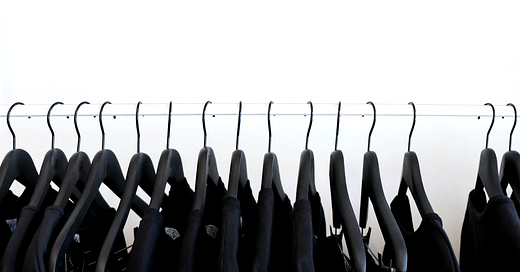During your day you will have a myriad of choices. Some of them might be simple and others quite complex. When you wake up in the morning, you have to decide what to wear, what your workout might be, what you will have for breakfast, what you will take for lunch, whether you will take lunch, and dozens more before you even start the bulk of your day. Then we mix in things like family, children, and work choices. These are some of the easier choices too. They can get far more complex and compile.
In a world where most of us can have access to nearly everything, choices are harder than ever. Choices can become extremely overwhelming and lead to a lot of stress. Our society, over the last 30-40 years has had the most access to choice. Choice is provided to us at material, personal, ethical, and political levels – as never before. This is wonderful, but extremely mentally draining. Even the simplest of tasks can have dozens of options.
I started thinking about this a lot after Elon Musk took over Twitter. I saw people that I follow jump ship to other platforms. There wasn't one clear winner, so instead of them going to the new kid on the block, they went to the half dozen of them. They started using Mastodon, read.cv, Threads.net, bsky.app, and more. I tried most of these, as they all had their selling points. But while the choice of choosing the next Twitter was empowering, it also made me very burnt out. Similar situations occurred when trying new productivity tools and even trying to switch software ecosystems.
As I mentioned a few weeks ago, limiting tools can increase intentionality, but it can also help with one of society's latest issues – decision fatigue. Decision fatigue is mental exhaustion imposed upon us when making too many decisions over time. This can lead to anxiety and add to burnout. How could we limit this modern-day problem? I have three ways of thinking that help me.
Minimalism
Use fewer tools, own less stuff, have fewer subscriptions. When you only have one or two of something, choice becomes easy. Decisions show themselves – they become obvious. Yes, having more is easier than ever, but even that is a choice. Less can equal more. In this case, less stuff equals more mental capacity.
Practically, having fewer clothing options means less choice. Steve Jobs made this popular with his black turtle neck and blue jeans style. He didn't believe that the choice of clothes was worth his mental energy, so he limited his wardrobe.
I have written about minimalism a lot. If you are interested, please check out the following editions.
Stoicism
Try not to control everything. One of the key pillars of stoicism is not thinking about or trying to impact things that are out of your control. This can manifest in worrying about other people's choices or something simple, like the weather.
When it comes to choice, if you stop making choices to control things outside of your actual control, you gain back mental energy and power. Don't wear something just to make someone else feel a certain way or perceive you as something you are not. Put on clothes that make you feel comfortable and confident. Control your choices.
Essentialism
Essentialism is exactly how it sounds, it is about having only what you need. Do you need to be on 7 social networks to grow your brand or business? Do you need to have 5 watches to tell the time? Do you need 30 pairs of shoes to walk to work? I think the answer is obvious, but our actions speak otherwise.
Only having what you need sounds similar to minimalism, but has a key difference. You can own something you want when practicing minimalism, while you own something you need when practicing essentialism.
I am not telling you to get rid of your things or ignore all the troubles in your life. I am simply empowering you to make fewer choices. When combining these things together, you can live a very fulfilling life, while feeling less anxious and burnt out. I know that I don't need to make another choice today. Deciding what I was making for lunch after three consecutive calls was more than enough.


